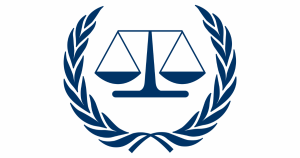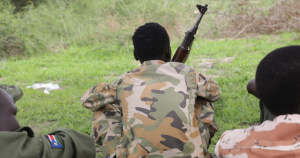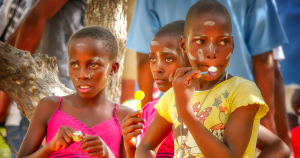Today, 17 July, is International Justice Day: after years of campaigning by No Peace Without Justice (NPWJ) and others, this date was adopted by the Assembly of States Parties to the International Criminal Court (ICC) during the first Review Conference of the Rome Statute held in Kampala, Uganda, in June 2010. International Justice Day marks the anniversary of the adoption by 120 States in 1998 of the Rome Statute, the founding treaty of the ICC, which entered into force on 1 July 2002.
Statement by Alison Smith, Legal Counsel of No Peace Without Justice:
“No Peace Without Justice (NPWJ) and the Nonviolent Radical Party, Transnational and Transparty (NRPTT) celebrate International Justice Day together with our partners around the world. On this day on which the ICC was born, through the adoption of its Statute, we wish to commemorate this moment with our partners and with everyone involved with the fight against impunity, including the ICC itself.
“Last year, we celebrated the 10th Anniversary of the International Criminal Court: since then, there have been several developments in the world of international justice, some welcome, some worrying and some notable by their absence. For the fight against impunity to be won, two things need to happen: States need to “talk the talk” in terms of their commitment against impunity, wherever it threatens to occur, then they need to stand by those words and make accountability happen. In all this, the victims and populations affected by crimes need to be and to remain front and centre: they are not an “add-on” or a luxury, they are the very reason why it is important to fight impunity at all.
“In Syria, there have been some efforts by Switzerland and other countries to promote accountability for ongoing violations by asking the UN Security Council to refer the situation in Syria to the International Criminal Court. These countries deserve our respect and support: they have at least kept accountability front and centre in their thinking on how to solve the crisis in Syria. The ICC itself may not be the answer to accountability in every situation, but its existence as a threat, a promise and a last resort has created an expectation that silence and inaction in the face of atrocities is no longer an option, an expectation that is sorely needed in Syria. By contrast, there has been little mention of accountability in Bahrain, despite the calls for justice and redress for past and ongoing violations of basic human rights from Bahraini civil society. NPWJ and NRPTT call on the international community to pay attention to what is happening in Bahrain and to support those actors in Bahrain seeking to have the recommendations of the Bahraini Independent Commission of Inquiry and the Universal Periodic Review Process implemented. The situation in Bahrain may seem small compared to Syria, but it is no less devastating for the victims and for a new generation that is growing up with the expectation of impunity.
“Just a few days ago, we commemorated the 18th anniversary of the genocide in Srebrenica, as did many others around the world. Every year on days such as this – commemorations of the worst possible day in people’s lives – we are reminded that victims are survivors with rights. These ordinary men, women and children are not objects of pity, but are people with a right to justice and redress, and a right to have their say in decisions affecting their lives. We are proud to be facilitating this throughout the world, especially in countries like Libya and Tunisia, where victims suffered the double repression of living under dictatorial regimes. It is critical that victims are empowered to hold accountable their governments and others who committed wrongs against them. It is for the international community – including the International Criminal Court – to heed their calls and provide victims with the tools they require to move forward with their lives, including by dealing with the past.
“It is also important that the fight against impunity not simply be allowed to fade away with the passage of time. For this reason, we are pleased that the Mechanism for International Tribunals (MICT), the successor organisation of the International Criminal Tribunals for the former Yugoslavia and for Rwanda, is now fully operational and will ensure that justice can be done for those who have managed to outlast the ICTY and ICTR. Likewise, the Residual Special Court for Sierra Leone is preparing to open its doors and ensure various Special Court obligations – including protection of victims and witnesses – are properly upheld once the Special Court concludes its work with the issuance of the Taylor Appeals Decision later this year. One fear expressed by the people of Sierra Leone and of Liberia in the survey we conducted last year on the Impact and Legacy of the Special Court was that with the Special Court closing its doors, impunity would again rear its ugly head; the Residual Special Court should see that does not happen. For this reason, NPWJ and the NRPTT strongly urge the international community, and particularly States who have been friends to Sierra Leone over the years, to ensure that the Residual Special Court has the more than modest funding it needs to fulfil these essential functions and ensure the legacy of the Special Court is not lost to Sierra Leone or the region.
“For the International Criminal Court itself, this has been a year of ups-and-downs. What remains constant is that to maintain and strengthen its relevance and impact, the ICC must have teeth. It must be sufficiently well resourced and supported, and sufficiently effective and efficient, to be a real threat, not merely a paper tiger. To give real teeth to the promise of justice, all States Parties should fulfil their obligations under the Rome Statute and cooperate fully with the ICC, notably by ensuring the enforcement of all its outstanding arrest warrants. We cannot – and must not – forget that there are still numerous fugitives from justice: their prompt arrest and transfer to face trial is the least that their victims deserve. All States must ensure that there will be no safe haven anywhere in the world in which alleged war criminals may hide.
“By the same token, States Parties must ensure that the ICC has sufficient financial resources and support to carry out its work and is in a position to deliver justice and redress for victims, which must be matched by the ICC’s courage and dedication to fulfil those promises by making real connections and having real impact. The ICC’s main challenges in maximising its impact lie in its outreach work and its field presence, two areas where important progress has been made but which remain woefully inadequate for the demands on the ICC and for the promise it can have. These efforts will have a tremendous impact in the coming years on the ability of the ICC to ensure a positive and lasting legacy, by restoring trust in the rule and institutions of law and building sustainable peace, in countries in which it operates and how it is perceived. We salute the ICC Prosecutor, Fatou Bensouda, and Registrar, Herman von Hebel, for their demonstrated commitment to their primary constituents, i.e. the victims of the crimes investigated and prosecuted at the ICC, and look forward to supporting them in their tireless efforts to come.
“As we consider the successes and challenges of the ICC, we must continue to bear in mind the “end goal”: the utopian dream for the ICC is that it will never have any cases, because these will either cease entirely or, more likely, be dealt with by States, who have the primary responsibility to investigate and, where appropriate, prosecute, crimes under international law. This vision, while surely many years and decades away from realisation, must drive not only the work of the ICC itself, but the work of everyone everywhere who seeks an end to impunity, no matter how big or small it may seem from the outside.”
- Download the statement in pdf format
For further information, contact Alison Smith on asmith@npwj.org or +32-2-548 39 12 or Nicola Giovannini on ngiovannini@npwj.org or +32-2-548-3915.




